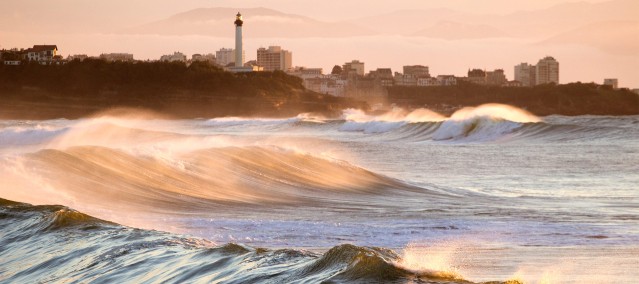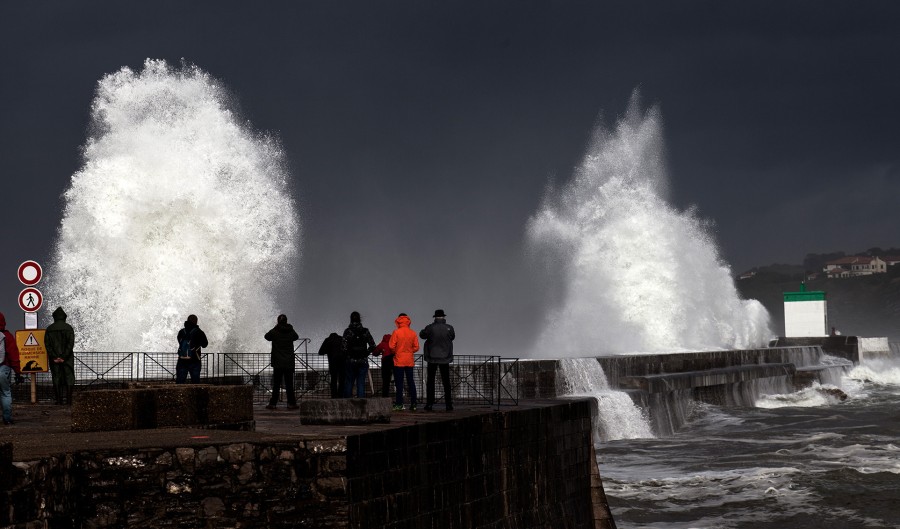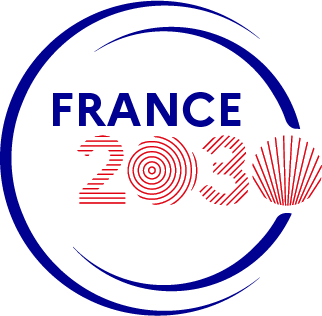
02 | 01 | 2023
Submergence and erosion risks: UPPA takes part in the European "Regions4Climate" project on the Basque coast
Through its joint research laboratory Kostarisk, the University of Pau and Pays de l'Adour is taking part in a major warning and protection project for the St-Jean-de-Luz coastline, in partnership with the Pays Basque agglomeration community.
The European Union's Regions4Climate (R4C) project aims to test concrete, cross-border solutions to climate change (environmental, social, technological, digital, governance). Over 3.5 million euros will be invested in the Basque Country to address the risks of flooding and erosion on the Basque coast.
Several partners are involved in the project: the Pays Basque Agglomeration Authority, the Basque Coast Scientific Interest Group, the SUEZ Rivages Pro Tech center based at the Izarbel Technopole in Bidart, the University of Pau and the Pays de l'Adour (Anglet campus) and AZTI, a technology center based in the Spanish Basque Country, the latter three being grouped together in the joint Kostarisk coastal risk research laboratory.
Research4Climate actions in the Basque Country
The actions implemented locally will be of two types:
- The development of early warning tools and real-time monitoring of wave-submergence risks: installation of videometric measurement stations and development of digital models capable of forecasting energy, water levels and the impact of storms on two sites: an urban site, the Bay of Saint-Jean-de-Luz, and a natural site, Erromardie beach.
- Deployment of a system for monitoring the behavior of breakwater-type protective structures (Artha dike) under extreme conditions, and experimentation with strategies for reinforcing natural rock barriers to promote wave dissipation upstream of vulnerable areas of the seafront.
The cross-border dimension of this project is essential, as both the French and Spanish rocky coasts bordering the Basque shores are highly urbanized and have the same typology, thus concentrating common challenges and solutions. Similar actions will therefore be carried out under the coordination of the government of the Spanish Basque Country, in conjunction with the AZTI, Tecnalia and Zabala technology centers, with the aim of strengthening cross-border exchanges and collaboration.

Fort de Socoa à St-Jean-de-Luz © Adobe Stock
The Regions4Climate project
The Regions4Climate project began in January 2023 and will run for five years. Coordinated by the Technical Research Centre (VTT) of Finland and bringing together 44 partners from 13 European countries, it has received a total grant of €24.5 million from the European Commission as part of the Horizon Europe research and innovation program on the theme of "Large-scale demonstrators of climate resilience creating cross-border value".

